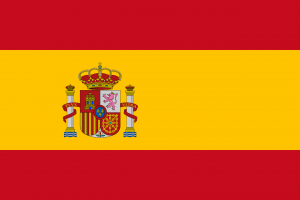Language/Spanish/Grammar/Conditional-Mood
Welcome to today's Spanish lesson on the Conditional Mood! As a Spanish language teacher with 20 years of experience, I am excited to guide you through this important aspect of Spanish grammar. By the end of this lesson, you will have a solid understanding of how to form and use the Conditional Mood in Spanish.
But don't stop there! To further enhance your Spanish language skills, I recommend checking out these related pages:
- Spanish Grammar - Plural - Spanish Grammar - Masculine and Feminine - Spanish Grammar - Present Progressive
By exploring these pages, you will gain a deeper understanding of Spanish grammar and be well on your way to becoming a fluent Spanish speaker. ¡Vamos! 💪🌟
Zero Conditional[edit | edit source]
| if-clause | Main clause |
|---|---|
If/When + Present Simple
|
Present Simple |
The Zero Conditional is used to talk about general truths.
Ex. If/When you press the button, the machine starts.
Conditional Sentences Type 1[edit | edit source]
We use Conditional Sentences Type 1 for something which is likely to happen in the present or future.
| if-clause | Main clause |
|---|---|
If + Present Simple
|
-Future will |
| -Modal Verbs (can, amy, might, must, should) + base form | |
| -Imperative |
If I see James, I will give him his book back.
If you want a pet, you must promise to take care of it.
If you go to the supermarket, buy some milk.
Conditional Sentences Type 2[edit | edit source]
We use Conditional Sentences Type 2 for unreal or imaginary situations which are unlikely to happen in the present or the future.
| if-clause | Main clause |
|---|---|
| If + Past Simple | Would/could/might + base form |
If I won the lottery, I would buy a farm in the country.
You could lose some weight if you went on a diet.
I might move to London if I got a good job there.
| -In Conditional Sentences Type 2 were is often used
instead of was in the if-clause. If I were rich, I would live in a luxurious house. -We use If I were you to express an opinion or to give advice. If I were you, I wouldn't buy it. -Unless can be used instead of If...not... in all conditional sentences. I won't buy this car unless you agree (= if you don't agree) -When the if-clause comes before the main clause, the two clauses are separated by a comma. |
Conditional Sencentes Type 3[edit | edit source]
| if-clause | Main clauses |
|---|---|
| If + Past Perfect | Would/could/might + have + past participle. |
Conditional Sentences Type 3 are used:
-To talk about unreal or imaginary situations in the past.
If I had won the lottery, I would have left my job.
-To express regret
If I hadnt' gone to bed so late last night, I would have woken up on time this morning.
-To criticise somebody/something.
If youhad completed your degree, you might have found a better job.
Other Lessons[edit | edit source]
- How to use articles in spanish
- Simple Future Tense
- The noun gender
- Past Perfect Tense
- Pronouns
- How to Use Be (SER and ESTAR)
- Gender
- The Articles
- How to use Ser o Estar (verb to be)
- Use the letters V and B

